Probation is a judicially imposed consequence to a criminal conviction that requires supervision of a criminal defendant by agents of the South Carolina Department of Probation, Pardons, and Parole.
Probation is a special form of supervision because it can only be imposed by a judge. This typically occurs at the time of sentencing. (“Sentencing” is when judges determine the consequences an individual must face after they plead guilty to a criminal charge or are found guilty of a crime after a trial.) When judges sentence defendants, they can utilize different types of punishment that fit the particular facts of that case. Probation is one such consequence.
Probation can be imposed as the only form of punishment or combined with some form of active jail time. Judges determine the time a defendant will serve on probation just like they dictate the time an individual serves in prison. Regardless of the crime, individuals cannot be on probation for more than 5 years.
When an individual is sentenced to probation, there are rules that he or she must follow. These rules can be found in South Carolina Code Section 24-21-430. In short, the statute states that individuals on probation shall:
- Refrain from the violations of any state or federal penal laws;
- Avoid injurious or vicious habits;
- Avoid persons or places of disreputable or harmful character;
- Permit the probation agent to visit at his home or elsewhere;
- Work faithfully at suitable employment as far as possible;
- Pay a fine in one or several sums as directed by the court;
- Perform public service work as directed by the court;
- Submit to a urinalysis or a blood test or both upon request of the probation agent;
- Submit to curfew restrictions;
- Submit to house arrest which is confinement in a residence for a period of twenty-four hours a day, with only those exceptions as the court may expressly grant in its discretion;
- Submit to intensive surveillance which may include surveillance by electronic means;
- Support his defendants; and
- Follow the probation agent’s instructions and advice regarding recreational and social activities.
Each criminal case is different, and there are some circumstances where probation is not an option. It is important to discuss the possibility of a probationary sentence with an experienced criminal attorney before you go to court. Blackwelder Law looks forward to hearing from you today for your free consultation.
Note: Individuals that are convicted of crimes often confuse the terms probation and parole. If the supervision period is imposed by a judge at the initial sentencing date, then it is called probation; if the supervision period is granted as a form of early release from an active prison sentence, then it is called parole.

